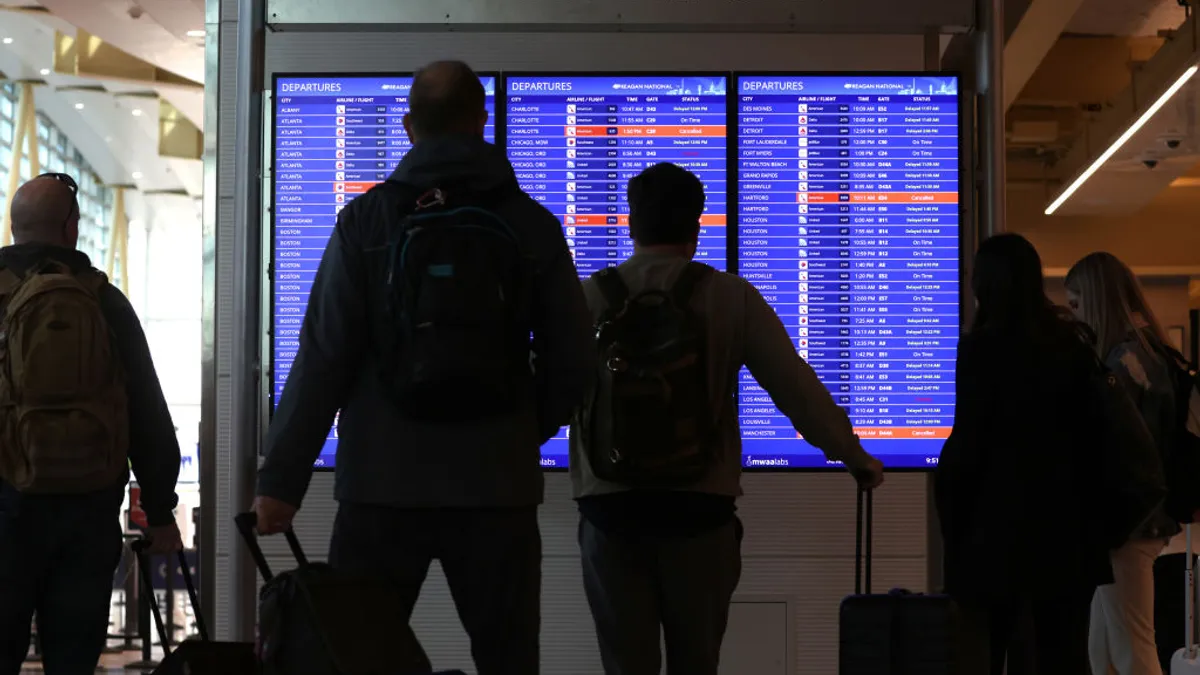Dive Brief:
- Thousands of flights across the U.S. were canceled or delayed Wednesday following an outage of the Federal Aviation Administration’s Notice to Air Missions (NOTAM) system.
- NOTAM provides aircraft personnel with real-time updates related to the status of the national airspace system. Following the outage, the FAA paused domestic departures at 7:15 a.m. ET Wednesday. Flights began resuming gradually by 9 a.m., the agency said.
- White House Press Secretary Karine Jean-Pierre said in a tweet Wednesday morning President Joe Biden had directed the Department of Transportation to conduct a full investigation into the outage. No evidence of a cyberattack had been found, Jean-Pierre said.
Dive Insight:
The aviation sector has a long history with software outages.
Almost every major domestic carrier has seen its operations disrupted by software glitches. Adverse weather recently threw a wrench in holiday travel plans, but no carrier was harder hit than Southwest Airlines. The airline's operations were disrupted for days during the holiday break, after IT systems failed to adapt for weather-related flight changes.
The FAA outage Wednesday "affected all airlines and will result in impacts to our operation today, Jan. 11, 2023," according to a statement on Southwest Airlines' website Wednesday. "Flight disruptions are likely as a result of this event."
United Airlines warned travelers "may continue to see delays and cancellations as we work to restore our schedule" following the systems outage, according to an alert on its website. JetBlue asked customers in a tweet to monitor their flight status amid residual delays from earlier disruption.
Aviation tracking site FlightAware identified nearly 7,000 delayed or canceled U.S. flights by 10:30 a.m. ET.
A senior U.S. official familiar with the FAA system outage said the agency had thus far found “no evidence of foul play," CNN reported Wednesday morning.
The issues that snarled holiday travel in recent weeks were indicators of fragility in the aviation sector, according to Ron Blair, VP, research and advisory at Gartner.
A number of factors contribute to outages such as the one experienced Wednesday, including:
- Technical debt
- Lack of transparency of true resilience posture
- Communication breakdowns
- Poor resilience risk management
- Efforts focused more on "checking the box" than continuous improvement.
"As a result of systems becoming more distributed and inherently more complex, more proactive measures are needed to identify and mitigate unknown IT resilience hazards," Blair said.












